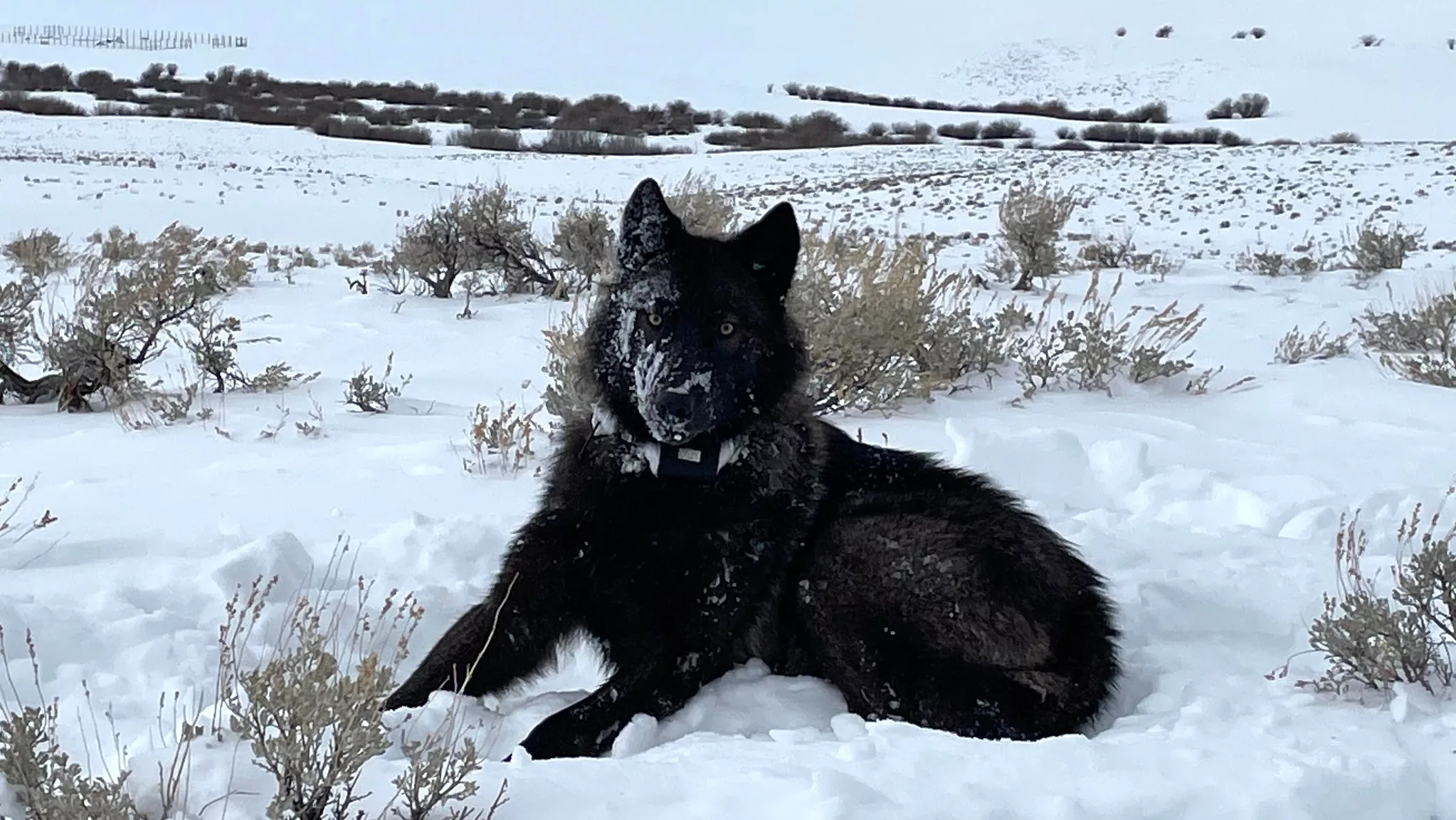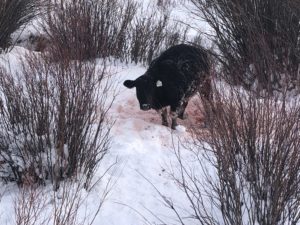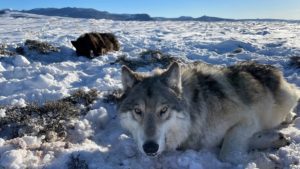
By Shannon Lukens.
The U.S. Fish and Wildlife Service has finalized its designation of an experimental population of gray wolves in Colorado. What it means is that when gray wolves are reintroduced by the end of the year, Colorado Parks and Wildlife and the public will have management flexibility. It’s the 10J rule, which goes into effect Dec. 8. It means lethal management against a wolf, if necessary. It helps with conflicts between wolves and humans, and wolves and domestic animals.

“It’s not over yet.”


That’s Jackson County rancher Don Gittleson, who has had four confirmed head of cattle die because of the wolves, two were injured, and others were missing. Dogs have also been killed by wolves in Jackson County.
“I’m not too excited about it yet because a lot of the pro-wolf groups could challenge it in court. That has happened on every single 10J Rule that has come into effect. It will depend on whether the judge will let the 10J Ruling stay in place while the court cases go through the court system or whether he puts that on hold until they go through the court system.”
Gittleson expects the pro-wolf groups to file the lawsuits on Dec. 7, which would be the day before the 10J Rule should go into effect.
In an article from The Coloradoan out of Fort Collins, Miles Bumhardt included a quote from Gary Skiba about the potential litigation from pro wolf groups. LinkedIn describes Skiba as, “Advocating for Wildlife Conservation in the San Juan Basin.” Skiba said most wolf advocates supported the 10J Rule and he didn’t expect they would pursue litigation. The quote was in reference to bipartisan Senate Bill 23-25, which was a 10J Rule bill that was passed in the Colorado House and Senate but vetoed by Governor Polis.
- Gary Skiba, current wildlife manager for the San Juan Citizens Alliance and former longtime Colorado Department of Wildlife (now Colorado Parks and Wildlife) employee, testified against the bill. He believes the U.S. Fish and Wildlife Service will have completed the 10(j) rule by Dec. 15, which he said most wolf advocates support. “We have had conversations with the wolf advocate community and they do not intend to pursue litigation regarding 10(j),” he told the Coloradoan.
From The Coloradoan; April 6, 2023
Will Colorado’s wolf reintroduction actually happen this year? Here’s what we know

News Release — U.S. FISH AND WILDLIFE SERVICE Nov. 7, 2023
U.S. Fish and Wildlife Service finalizes designation of gray wolf experimental population in Colorado
DENVER — In support of a statewide voter-led initiative passed in November 2020, the U.S. Fish and Wildlife Service has finalized the designation of an experimental population of gray wolves (Canis lupus) in Colorado under section 10(j) of the Endangered Species Act. This action provides management flexibility in support of the state of Colorado’s voter-mandated gray wolf reintroduction program.
The final 10(j) rule and final Record of Decision are available today in the Reading Room and on the project webpage. The 10(j) rule becomes effective on December 8, 2023, 30 days after publication in the Federal Register.
The Colorado Parks and Wildlife Commission intends to reintroduce the gray wolf in a portion of the species’ historical range in Colorado by December 31, 2023. Colorado Parks and Wildlife requested the designation of an experimental population under section 10(j) of the ESA to provide the state with increased flexibility to manage wolves once reintroduced in Colorado. CPW completed and published a Final Wolf Restoration and Management Plan for reintroducing the species. The state management plan provides for differing management tools based on achieving recovery targets. As the state achieves these recovery targets, tools available to the public under state laws and regulations may be more restrictive than what is allowable under the Service’s federal rule.
Today’s announcement follows extensive coordination and outreach among many partners in Colorado at the local, state, federal, and Tribal levels. On September 15, 2023, the Service previously announced the draft ROD and Final Environmental Impact Statement. The final ROD concludes that the Service will implement proposed “alternative 1” from the scoping and draft process to finalize a 10(j) experimental population designation.
This final Service experimental population rule designates management flexibility to the state for reintroduced gray wolves in Colorado. This management flexibility can help to address potential conflicts between wolves and humans, and wolves and domestic animals while contributing to the conservation of the species. Learn more about 10(j) rules and experimental populations online.
Additional information, documents, and frequently asked questions about the experimental population designation can be found at https://www.fws.gov/coloradowolf. More information from CPW regarding their reintroduction of gray wolves can be found at https://cpw.state.co.us/learn/Pages/CON-Wolf-Management.aspx.
-FWS-
Statement from United States Senator John Hickenlooper; Nov. 7, 2023.
Final Gray Wolf Reintroduction Rule Heeds Hickenlooper Call for Flexibility
WASHINGTON – Today, U.S. Senator John Hickenlooper applauded the U.S. Fish and Wildlife Service’s Final Record of Decision (ROD) to create more flexibility for gray wolf management under section 10(j) of the Endangered Species Act. The 10(j) rule will become effective on December 8, 2023, 30 days after publication in the Federal Register.
“This final rule respects the will of Colorado voters, farmers, ranchers, and conservationists, and sets our state up for responsible gray wolf reintroduction,” said Hickenlooper.
In 2021, Hickenlooper sent a letter to Interior Secretary Deb Haaland and USFWS Principal Deputy Director Martha Williams requesting a Section 10(j) designation to improve state and stakeholder management capabilities. Hickenlooper also submitted a formal public comment to the U.S. Fish and Wildlife Service, encouraging the agency to allow more flexible management of the gray wolf through Section 10(j) of the Endangered Species Act.
###